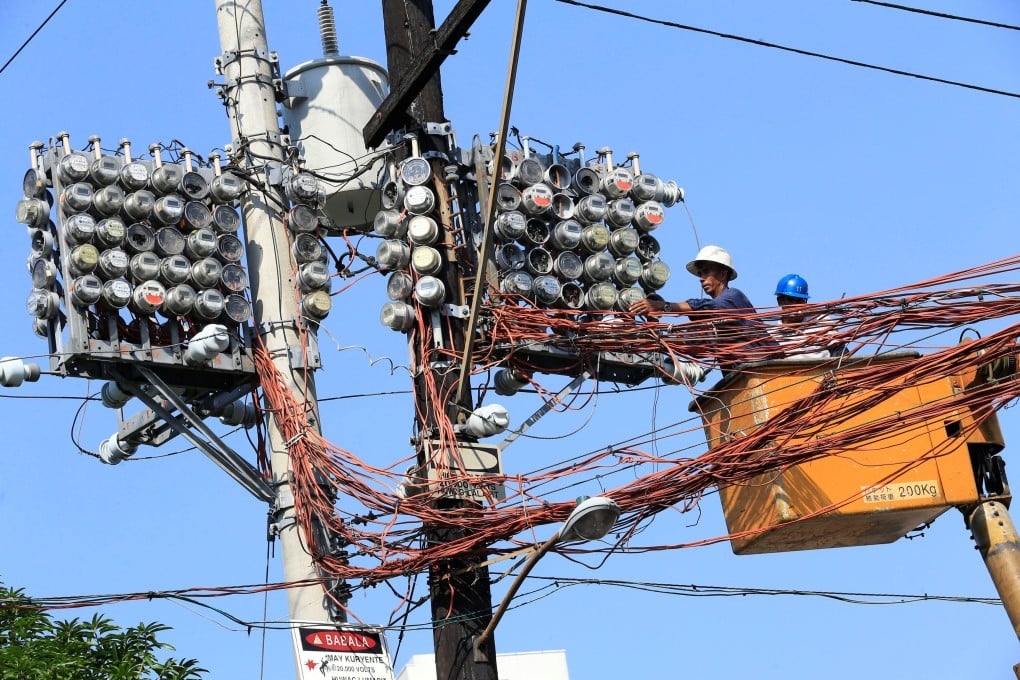Chinese stake in Philippine power grid operator raises concerns about security, skill transfers
Lawmakers revive fears of ‘kill switch’ to power grid amid concerns about limited skill transfers to Filipinos and lack of operational transparency

Lawmakers in the Philippines have raised renewed concerns about the country’s national grid operator and its alleged violation of foreign ownership laws, reviving fears about China wielding excessive influence over the Philippines’ energy supply – including a “kill switch” that could turn off power across the archipelago.
While analysts dismiss the possibility of such a switch, they say the issue does raise concerns about limiting skill transfers to Filipino engineers and a lack of operational transparency that could leave the country vulnerable to undue foreign influence over critical infrastructure.
At the centre of the controversy is the National Grid Corporation of the Philippines (NGCP), which is 60 per cent owned by the Filipino-led Synergy Grid of the Philippines (SGP) and 40 per cent by the State Grid Corporation of China (SGCC).
Lawmakers have alleged that the NGCP may have violated foreign ownership laws, which only allow up to 40 per cent of foreign investments in certain industries, including public utilities.

On January 6, Joey Salceda, chairman of the House Committee on Ways and Means, raised questions about the NGCP’s ownership structure, including the fact that its chairman, Zhu Guangchao, is a Chinese national.
Salceda also cited the SGP’s Philippine Stock Exchange submissions, which said foreign shareholders including those of American, Chinese, Malaysian and Iranian nationalities held stocks accounting for 7.48 per cent of the company’s ownership.
